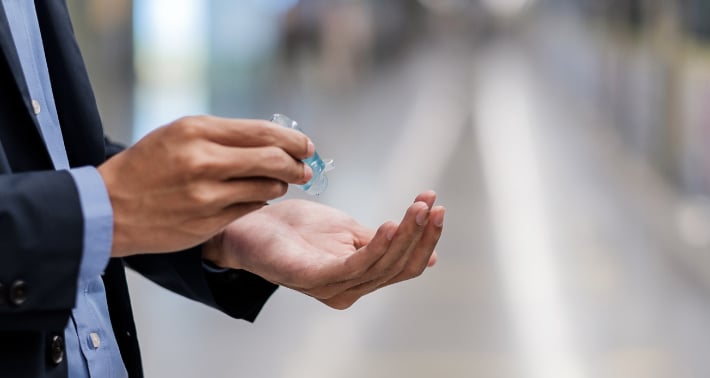
Even in the event of a pandemic, employers have an obligation of safety and performance in protecting the health and safety of workers in the company. But what can you do as an EHSQ manager? What behaviour to have? All the answers to follow.
As a reminder, the employer has a performance obligation in terms of protecting the health and safety of employees. It is therefore up to them to do everything possible to protect their employees from this virus during their working hours.
In the case of an epidemic, it may, for example, ask for :
- Favouring long-distance discussions
- Limit physical contacts (hugging, handshaking)
- Encouraging employees to wash their hands more regularly
It is up to each company to recommend or even impose what it considers most relevant.
As an EHSQ manager, what do I have to do?
As a manager, your role is to reassure your teams. To do this, you could communicate information from the Government or the World Health Organization directly on your corporate intranet, for example. You can also pass on your employees' questions to the occupational health department if you cannot find the appropriate answers.
Where to start?
In order to best manage risk situations it is necessary to rely on general principles of prevention. Beginning by consulting the staff representative bodies allows the most relevant measures to be adapted to deal with the risk.
It may be advisable to contact occupational medicine to determine the most suitable measures from a medical point of view. On the other hand, your role is also to update the risk assessment document with details of the preventive measures implemented.
What PPE should I make available?
Transmission of the coronavirus (COVID-19) occurs through the respiratory tract, hand contact and saliva exchange. It therefore occurs through close contact after inhalation of infected droplets from sneezing or coughing, or after contact with surfaces contaminated with the virus.
As a manager, ensure that all employees are provided with hydroalcoholic gel. Also provide FFP2 masks for employees who move around in risk areas. Disposable surgical masks are only recommended for infected or confined persons. If an employee has been contaminated, remember to clean the premises (floors and surfaces) thoroughly.
What about business trips?
If your employees have contacts with customers, partners or suppliers from high-risk areas, you should favour long-distance interactions: telephone calls or video-conference exchanges. If you or your collaborators have planned audits, favour long-distance audits. There are now digital tools that allow the auditor to stay on site and remotely guide a collaborator on site. He will then be his eyes and ears.
If travel is essential in high-risk areas, invite your colleagues to telework, the incubation period of the virus.
The risk of infection can be particularly high in confined work environments. The implementation of hygiene rules, individual protection and digital tools by the manager limits the risk of epidemics within the company.
. . .




-1.jpg?width=169&name=unnamed%20(3)-1.jpg)

.jpeg?width=169&name=AdobeStock_118020918%20(2).jpeg)